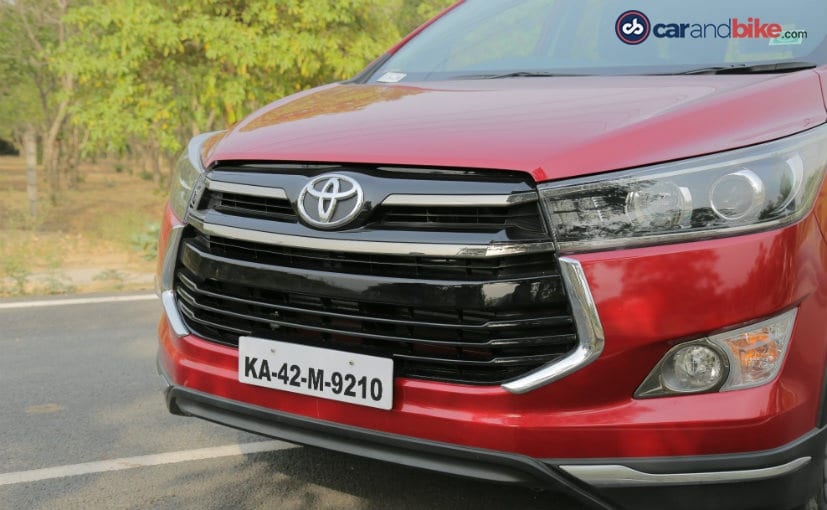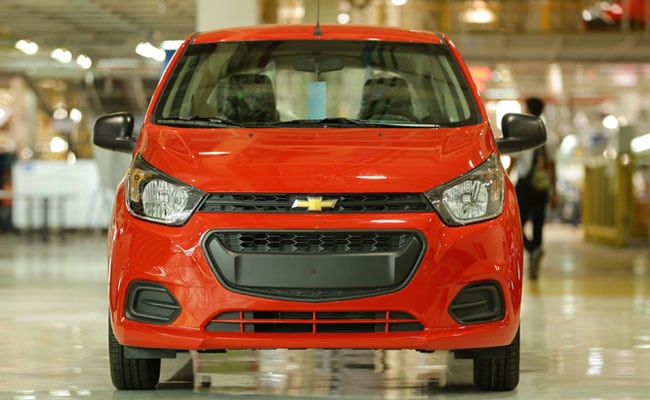
Toyota Motor Corp. will not expand further in India due to the country’s high tax regime, a blow to Prime Minister Narendra Modi, who is trying to attract global companies to offset the deep economic malaise caused by the coronavirus pandemic. The government keeps taxes on cars and motorcycles so high that companies find it difficult to scale up, said Shekar Viswanathan, vice president of Toyota’s local unit, Toyota Kirloskar Motor. High taxes also put car ownership out of reach for many consumers, meaning factories are idle and no jobs are created, he said.
“The message that we are getting, having come here and invested money, is that we don’t want it,” Viswanathan said in an interview. In the absence of reforms, “we will not leave India, but we will not increase.”
Toyota, one of the largest car manufacturers in the world, started operations in India in 1997. Its local unit is 89% owned by the Japanese company and has a small market share: only 2.6% in August compared to almost 5% a year earlier, Federation of Automobile dealer associations data are shown.
Also read: 37 new positive cases of COVID-19 registered at the Toyota plant in Bidadi last week

Toyota says the tax increase puts car ownership out of reach for many consumers, meaning factories are idle and no jobs are created.
In India, motor vehicles, including cars, two-wheelers, and sport utility vehicles (though not electric vehicles), attract taxes of up to 28%. On top of that, there may be additional taxes, ranging from 1% to 22%, depending on the type, length, or size of a car’s engine. The tax on a four-meter-long SUV with an engine capacity of more than 1500 cc comes to 50%.
Read also: Car sales in August 2020: Toyota records a decrease of 48.08 percent
Ford, GM out
Additional levies are typically imposed on what are considered “luxury” goods. Besides cars, in India that can include cigarettes and sparkling water.
India plans to offer $ 23 billion worth of incentives to entice companies to set up manufacturing, people familiar with the matter said last week, including production-linked breaks for automakers. International automakers have struggled to expand into the world’s fourth-largest auto market.
General Motors Co. resigned from the country in 2017, while Ford Motor Co. agreed last year to move most of its assets in India to a joint venture with Mahindra & Mahindra Ltd. after fighting for more than two decades to win over buyers. That effectively ended independent operations in a country Ford had once said wanted to be one of its top three markets by 2020.

General Motors left the country in 2017, while Ford has said it will move most of its assets in India to a joint venture with Mahindra.
These punitive taxes discourage foreign investment, erode margins for automakers and make the cost of launching new products “prohibitive,” Viswanathan said.
“You would think that the auto sector is making drugs or liquor,” he said. Toyota, which also has a partnership with Suzuki Motor Corp. to sell some of Suzuki’s compact cars under its own brand, is currently using about 20% of its capacity at a second plant in India.
Taxes on electric vehicles, currently 5%, will likely also go up once sales increase, Viswanathan said, referring to what he says has become a pattern with successive governments in India.
While discussions are ongoing between ministries for a tax cut, there may not be any immediate agreement on an actual cut, India’s Heavy Industries Minister Prakash Javadekar said earlier this month.
A spokesman for the Finance Ministry did not immediately respond to messages seeking comment.
EV challenge
Auto sales in India were weathering a slump before the coronavirus pandemic, with at least half a million jobs lost. One lobby group has predicted that sales may take up to four years to return to the levels seen before the slowdown.
The main players are the local units of Suzuki and Hyundai Motor Co., which have dominated the market for compact and affordable cars. Maruti Suzuki India Ltd. and Hyundai Motor India Ltd. have a combined participation of almost 70%.
Toyota in India has largely turned towards hybrid vehicles, which attract taxes of up to 43% because they are not purely electric.

Hybrid vehicles in India attract taxes of up to 43% and all Toyota electric vehicles in India are hybrids.
But in a nation where few can afford a car, let alone a greener one, electric vehicles or their hybrid cousins have yet to gain much acceptance. Elon Musk, the billionaire founder of Tesla Inc., has said that import obligations would make his vehicles unaffordable in India.
“Market India always has to precede Factory India, and this is something that politicians and bureaucrats don’t understand,” Viswanathan said. Modi’s much touted Make in India is another program aimed at attracting foreign companies.
India needs to have a demand for a product before asking companies to establish themselves, but “at the slightest sign that a product is doing well, they slap it in the face with an ever higher tax rate,” he said.
(This story has not been edited by NDTV staff and is automatically generated from a syndicated feed.)
0 Comments
For the latest car news and reviews, follow carandbike.com at Twitter, Facebook and subscribe to our YouTube channel.
.